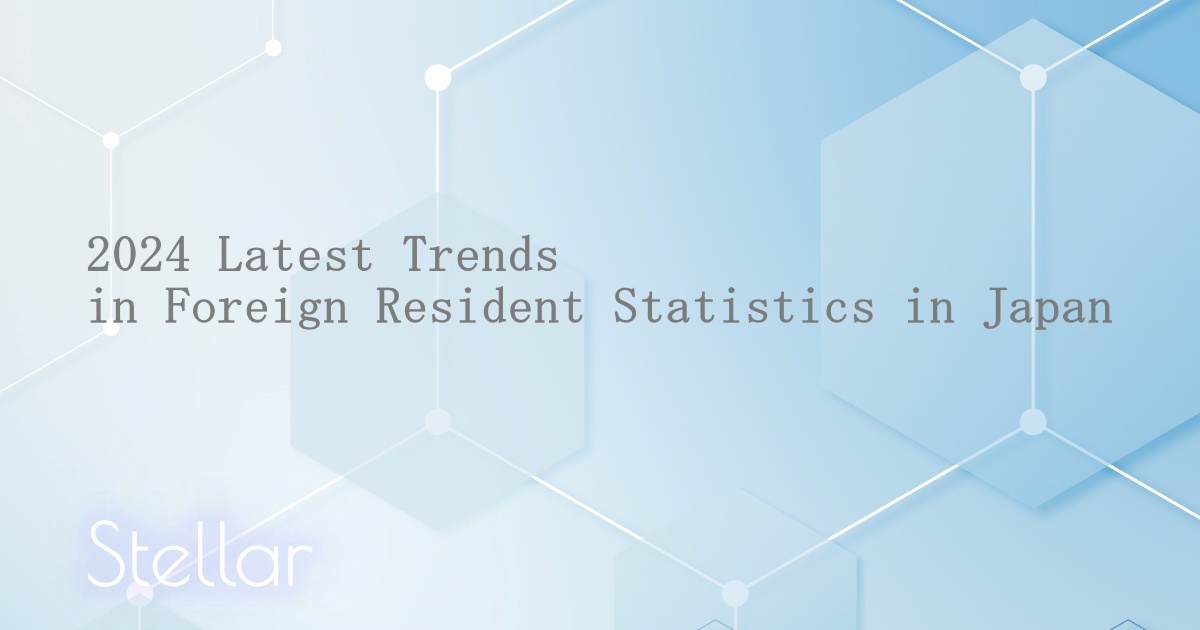Permanent Residency in Japan: Overview, Benefits, and Key Points

Introduction
As of the end of 2024, “Permanent Resident” is the status of residence held by the largest number of foreign nationals living in Japan (excluding Special Permanent Residents).
Our office also receives many inquiries regarding permanent residency.
Let’s take a closer look at what it means to be a “Permanent Resident” in Japan.
※ For more information on the latest statistics by status of residence, please refer to this article.

What Is a Permanent Resident in Japan?
According to the Immigration Control and Refugee Recognition Act, a “Permanent Resident” is defined as “a person who is granted permanent residence by the Minister of Justice.”
This refers to a foreign national who has been granted permission by the Minister of Justice to live permanently in Japan.
It is expected that the individual will make Japan their place of residence for the remainder of their life.
The decision to approve or deny the application is at the discretion of the Minister of Justice.
Even if all the required conditions are met, approval is not guaranteed.
The decision is made based on a comprehensive evaluation at the discretion of the Minister of Justice.
Application for Permanent Residence in Japan
In Japan, a permanent residence application is a request made by foreign nationals who already hold a residence status and wish to change their status to “Permanent Resident,” which is granted by the Minister of Justice.
Therefore, the application process is considered a type of status change application.
As such, under the current system, there is no direct option to obtain a residence status specifically for the purpose of permanent residence.
In recent years, permanent residence permits have also been granted as an incentive for foreign nationals who should be encouraged to enter and stay in Japan, such as highly skilled professionals, as part of government policy.
The permanent residence application is typically based on highly personal circumstances.
For example, an employer of a foreign employee only needs to support the employee’s residence status for the purpose of employment, and unless there are special reasons, there is no need to consider the employee’s permanent residence application.
(However, if the employee wishes to apply for permanent residence, the employer’s cooperation in providing necessary documentation, such as employment-related documents, will be required.)
Of course, there are significant advantages for employers in hiring individuals with permanent resident status, such as not needing to assist with visa renewals.
However, the application itself is never made on behalf of the employee by the employer.
Permanent residence is deeply connected to an individual’s life planning, and the reasons for applying are often highly personal.
Benefits of Holding Permanent Resident Status
Permanent Resident status offers several advantages not available with other residence statuses.
① No restrictions on activities in Japan
Permanent Residents are not limited in the types of activities they can engage in while residing in Japan.
Even if their personal circumstances change, there is no need to apply for a change of status.
For example, if a person on a work visa wants to change jobs, their new job must match the category of their current residence status.
However, a Permanent Resident is free to choose any type of employment and can transition more smoothly to different kinds of jobs.
Furthermore, during a period of job search after leaving employment, there is no need to worry about the remaining validity period of their residence status.
Another example is when a person who holds a status based on marriage to a Japanese national divorces or loses their spouse — a Permanent Resident can continue to reside in Japan without needing to change their status.
② No limitation on the period of stay
Permanent Resident status does not require periodic renewals.
The absence of renewal procedures eliminates concerns about timing, as well as anxiety over whether an application for renewal will be approved, offering greater peace of mind.
③ Increased social credibility
Permanent Residents are more likely to be treated the same as Japanese nationals in financial evaluations, such as when applying for housing loans or bank financing.
They also tend to face fewer obstacles when entering into lease agreements for real estate, compared to individuals with other types of residence statuses.
Practical Tip
If a foreign national with a Highly Skilled Professional status applies for permanent residence, the preferential treatment unique to that status—such as permission to bring a parent to Japan under certain conditions—will no longer apply once permanent residency is granted.
Points to Note After Obtaining Permanent Residence:
① No need for visa renewal, but resident card renewal is required.
② You may still be subject to deportation if you meet certain criteria for deportation.
Even with permanent residence status, a foreign national may be subject to deportation if they commit a serious violation (such as a criminal conviction).
③ Your nationality does not change.
Therefore, there are no political rights, such as the right to vote or stand for election, whether at the national or local level.
Things to Consider When Applying
① Preparing for the application involves proving that you meet the requirements outlined in the official guidelines.
② The requirements stated in the guidelines cannot typically be met in a short period of time, so it is important to maintain a lifestyle with a conscious focus on permanent residence from the start of your stay in Japan.
③ A guarantor can be either a Japanese national or a permanent resident, but not just anyone will suffice.
It is important to keep in mind that the background of the guarantor will likely undergo a thorough check.
Conclusion
For individuals who have newly obtained a residence status and are beginning a medium- to long-term stay in Japan, it is important to recognize that permanent residence may become a viable option in the future.
Please keep in mind that your residence history from the very first day of your stay can significantly influence your eligibility for permanent residence later on.
At Stellar Immigration Consultancy, we provide professional consultations for individuals seeking permanent residence in Japan, with a focus on those residing in areas served by the Fukuoka and Hiroshima Regional Immigration Services Bureaus.
A complimentary initial consultation of up to one hour is available.
If you are considering applying for permanent residence, please feel free to contact us.
